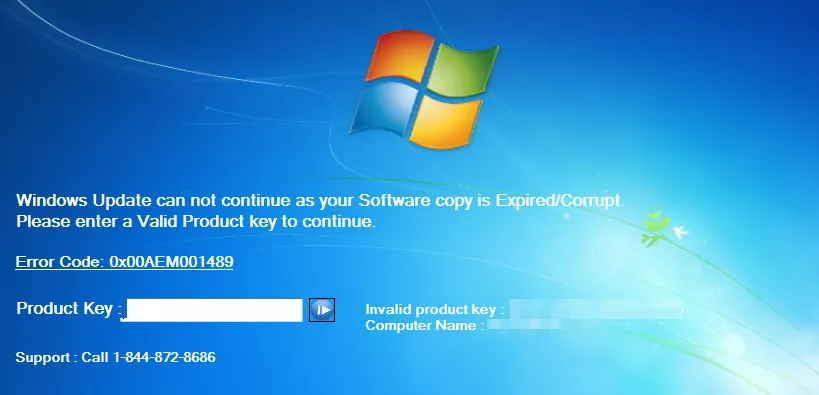
Tech Support scams have existed for a very long time. It has only recently increased in popularity.
It all started out with phone calls from “Microsoft” employees. These were fake calls where thy would act as technical support for Microsoft and would tell you that if they couldn’t login to your PC to fix the issue that your were going to be in trouble. Either with the police or your ISP. Once they got into your computer they would begin installing random free programs or viruses and then tell you that you had to pay X amount. This worked a lot and it sadly still does.
Fast forward to now and we have so many more variations on this old scam. The most popular one normally starts off with a simple email or a file download from a website. Once you install it you will start getting virus warnings or in some cases you get locked out of your computer entirely. They pretty much all end out the same way, giving you a phone number to call and someone on the other end telling you to pay X amount for them to fix it. The strange part is most of the time the person on the other end doesn’t know they are doing anything wrong or simply need the work so badly that they are willing to do it.
The people behind these scams make off with millions. Don’t fall for them. Microsoft will never call you to fix your computer and if you are worried, look up a local computer store like us at Computer Mechanics and give them a call to talk about it.
FAQs
1. What is a tech support scam?
A tech support scam is a type of fraud where scammers pose as legitimate technicians, often claiming to be from companies like Microsoft or Windows Support to trick users into believing their computer has a virus or security problem. The goal is to gain remote access, install malware, or charge for fake repairs and services.
2. How do tech support scams usually start?
Tech support scams can begin in several ways:
- Fake phone calls from “Microsoft” or “Windows Support” offering to fix a problem.
- Pop-up alerts or fake virus warnings that urge you to call a number.
- Emails or downloads containing malicious software that locks your PC or displays fake security alerts.
Once you engage, scammers try to convince you to pay for unnecessary repairs or software.
3. Can Microsoft or other companies call me about computer problems?
No. Microsoft and legitimate companies never make unsolicited phone calls or send messages asking for remote access. Any unexpected call or message claiming to be from Microsoft or Windows Support is a scam. Microsoft only contacts users if they have initiated a support request through official channels.
4. How can I avoid falling for these scams in the future?
To avoid falling for these scams in the future, you can:
- Never trust pop-ups or cold calls claiming your computer has problems.
- Keep your software and antivirus up to date.
- Only use official company websites when seeking help.
- Educate friends and family about how these scams work.
